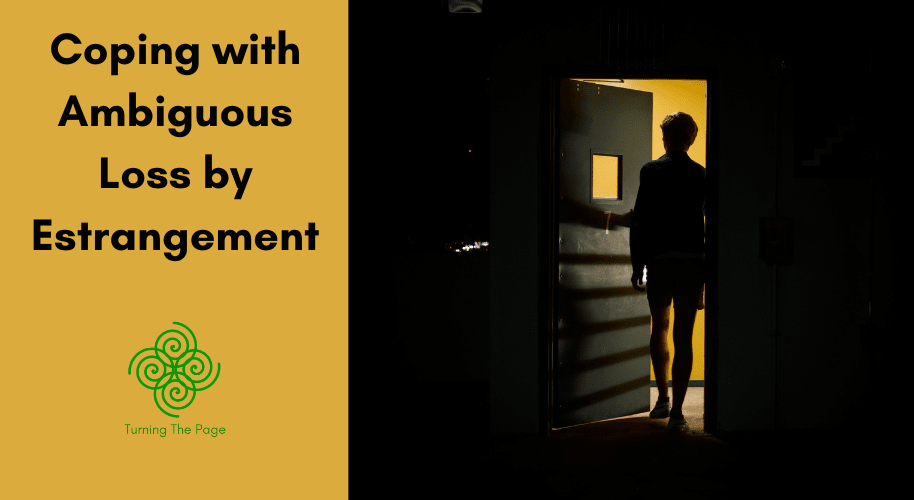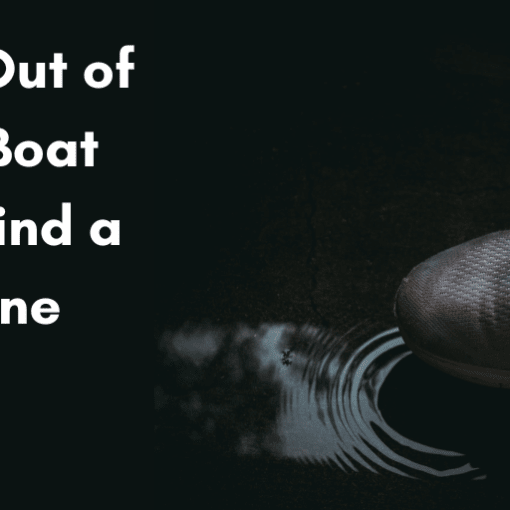I never saw it coming -the cataclysmic argument that triggered my adult son to estrange me three years ago. I might never see it end -the suffering of ambiguous loss of the relationship without closure.
Coined by family therapist Pauline Boss, Ph.D., 40 years ago, ambiguous loss refers to unresolved physical or emotional loss or the loss of a relationship with no closure.
Unresolved closure might involve a physical loss with a psychological presence when a loved one’s absence is unknown, uncertain, or unresolved.
Likewise, a loved one might be physically present but psychologically absent because of dementia, traumatic brain injury, addiction, or mental illness.
Ambiguous loss refers to unresolved physical or emotional loss
or the loss of a relationship with no closure.
So, too, the ambiguous loss may encompass physical and emotional loss because of divorce, adoption, estrangement, incarceration, immigration, or ghosting. Such loss is especially grievous around the loss of a fulfilling long-term relationship.
Such is my circumstance.
Ambiguous Loss by Estrangement
Three years after the meltdown with my 34-year-old son, an occasional flicker of hope for contact, connection, and reconciliation still moves me to reach out. But sadly, my text messages and phone calls go unreturned.
My invitations for meet-ups go unacknowledged. And his once frequent reach outs to check in on me, his mother who raised him as a single parent, are but a distant memory.
No matter the circumstance, the interminable suffering of ambiguous loss defies resolution, creates long-term uncertainty about the relationship, and freezes the grief process, according to Boss.
Yet, unlike death, whereby mourners receive confirmation of the loss and support through funerals, burials, and gatherings, none exist for unresolved loss.
So often, we who experience estrangement never see it coming. Only after a prolonged silence, separation, and isolation do we realize the exquisitely painful loss of the cherished relationship we once knew.
Hence, like an unsuspecting moth captured in a jar, we find ourselves trapped in the suffocating reality of ambiguous loss. We see our human swarm living interconnected lives, oblivious to the invisible suffering separating our reality from theirs.
In numbness and shock, we expend untold energy attempting to escape the misery of separation. In yearning to restore the relationship, we resort to “bargaining” -with our Creator, ourselves, and the aggrieved party.
In anger, we deny, deflect, defend, and dismiss our role in the conflict. Finally, in anguish, we deplete our mental, emotional, and spiritual reserves for coping and thus descend into hopelessness and despair.
Alas! Like the entrapped moth, whose spirit succumbs to the oxygen-depletion, the light of our being fades in the reality of the depleted relationship – the “oxygen” that once breathed life, love, and interconnection into our hearts.
How can we move forward amidst the interminable torment of estrangement by a parent, child, or partner with whom we once shared a fulfilling relationship?
I offer some insight based on my experience of ambiguous loss by estrangement.
Moving forward
-
Hold yourself in loving self-kindness
Your loss is real, and your grief is bottomless. Whether you recognize what caused the shift or have no clue, berating yourself over what you could’ve, should, or might’ve done is moot.
As the reality of the estrangement sets in, you may experience recurring bouts of guilt, shame, ignorance, naivete, anguish, anger, sadness, despair, worry, yearning, and a host of other complicated feelings.
The overwhelm of such feelings, especially when repressed, suppressed, dismissed, or denied over time, can derail your emotional mettle for coping. Carve out a set amount of time daily to meditate and sit with your feelings in nonjudgmental, loving self-kindness.
-
Forgive your loved one
Every human being is flawed, fragile, broken, and wounded. The person who estranged you may have issues of which you are unaware, and they may not have the emotional capacity for the relationship they once shared with you.
Likewise, they may not have the emotional intelligence or maturity to confront you about their grievance. The person may not recognize their lack of emotional capacity or maturity. Thus, they see estrangement as their only protective defense mechanism.
Forgive your loved one in your heart and in your prayers. Forgive them when gazing at their picture, and forgive them when remembering the joyful moments of your relationship.
Forgiveness might not heal the estranged, but it can heal us who suffer the estrangement. So, too, recognize that your loved one may suffer similar complicated feelings about ending the relationship without closure.
-
Forgive yourself
You are human. Whether it was a series of micro-hurts, a cataclysmic circumstance, or an unknown rift that shifted the relationship, forgive yourself. You had needs that, for whatever reason, you could not express, or the other person could not meet, or vice versa. It takes two persons to nourish a relationship and two to make it wither.
Indeed, you may never know what drove your loved one to choose estrangement over relationship. Forgiving yourself is the first step in arriving at some degree of acceptance and peace in processing concomitant grief of ambiguous loss.
-
Seek community
Seek community with others who live with ambiguous loss by estrangement. Like the moth trapped in the jar, we who suffer alienation sadly so often do so in isolation, amplifying the loss of our human interconnections.
-
Move toward the light
As the shock of estrangement wanes, gently and with great self-compassion, begin looking at the parts of yourself that reflect your authentic essence and those that no longer reflect who you are.
Direct your focus to nurture the best parts about yourself and aim to surrender those that no longer serve you.
And so, as you live in the reality of ambiguous grief, may you once again find the light of your being through healing, community, and the “oxygen” of new human interconnections.
Quotes to consider
- I am a stranger in this world, and there is a severe solitude and painful lonesomeness in my exile. Kahlil Gibran, The Treasured Writings of Kahlil Gibran
- It is an absolute human certainty that no one can know his own beauty or perceive a sense of his worth until it has been reflected back to him in the mirror of another loving, caring human being. John Joseph Powell, The Secret of Staying in Love
- To be soul broken is to be filled with anguish that is brought on by the loss of our love, our relationship, and ourselves, and, often it is void of validation. If you know this pain, my deepest sympathies to you, not only for your loss but for how you’ve been hurting. Stephanie Sarazin, Soulbroken: A Guidebook for Your Journey Through Ambiguous Grief
- Exile is strangely compelling to think about but terrible to experience. It is the unhealable rift forced between a human being and a native place, between the self and its true home: its essential sadness can never be surmounted. And while it is true that literature and history contain heroic, romantic, glorious, even triumphant episodes in an exile’s life, these are no more than efforts meant to overcome the crippling sorrow of estrangement. Edward W. Said, Reflections on Exile and Other Essays
- I’m afraid your memories of me are unfair. A.A. Patawaran, Manila Was A Long Time Ago – Official
- I intentionally hold the opposing ideas of absence and presence because I have learned that most relationships are indeed both. Pauline Boss, Ph.D. The Myth of Closure: Ambiguous Loss in a Time of Pandemic and Change
Questions to answer
- Ambiguous loss can encompass other types of loss beyond relationships. Have you experienced ambiguous loss around unrealized hopes, dreams, goals, or disappointments, such as the unexpected loss of a job, health, career, home, lifestyle, stage of life, or group of friends? Did you feel isolated in that no one seemed to notice or understand the depth of your grief?
- Have you ended a relationship without offering the other person an opportunity for closure? Over time, have you considered how the other person has processed the unresolved closure and how you have processed (or not processed) the loss of the relationship?
- Have you considered reconciling with the estranged person directly or indirectly (i.e., through a letter or third party)? What might be your hesitancy or fear?
Guest Blogger Bio: 
Peggy M. Phillips is an author writing in the Christian Fiction-Metaphysical genre. Peggy debuted her first work of fiction in November 2022 with the poignant and powerful epistolary novella, “Letters to the Little Flower The Gift of Spiritual Companionship with St. Therese of Lisieux.” Born in Wichita, KS, United States, Peggy grew up in a large Catholic family in a small Kansas town. A Registered Nurse who works in mental health services, Peggy enjoys hiking the beautiful nature trails of Kansas and spending time with her family.
Resources:
https://www.ambiguousloss.com/resources/
Photo by Milo Bauman on Unsplash
Further reading

Barry is a writer, coach, and course creator that has a passion for empowering Mental Health through Faith, Hope, and Love.
Get two free ebooks. One about Depression and one about Spiritual Exercises that will help your Mental Health





